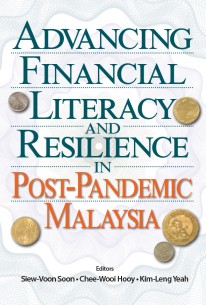While Malaysia has made significant strides in promoting financial inclusion and financial literacy in recent years, there remain several challenges still require attention. The COVID-19 crisis has triggered substantial economic disruptions, leading to job losses, decreased income, and financial instability for numerous individuals. This situation has underscored the significance of emergency savings and preparedness to handle unexpected crises, as well as heightened reliance on credit and loans. Furthermore, the adoption of digital financial services such as online banking, mobile payments, and digital investments has accelerated, alongside a surge in financial scams targeting vulnerable individuals. Concerns also arise from the high levels of household debt fueled by easy credit access and a consumerist culture.
Addressing these issues necessitates sufficient knowledge, skills, and comprehension of financial concepts, products, and services, along with equitable access to a diverse range of financial services, particularly in marginalized communities and rural areas. The current uncertainties surrounding economic recovery further emphasize the need to enhance financial literacy, empowering individuals to navigate these challenges effectively. Strengthening financial literacy equips individuals with the tools to make informed financial decisions, manage their finances effectively, and utilize financial services responsibly.
In Advancing Financial Literacy and Resilience in Post-Pandemic Malaysia, the latest research consolidates critical aspects of financial inclusion and financial literacy. Divided into three sections, this edited volume— based on selected papers delivered at the Financial Education Network (FEN)’s National Financial Literacy Symposium 2022 (NFLS2022)— engages in discussions about financial literacy, financial behaviour, financial attitude, and the impact of the COVID-19 crisis on the financial well-being of Malaysian households and individuals. Additionally, it addresses instruments and policies pertaining to financial literacy. By equipping individuals with the requisite knowledge and skills through the enhancement and improvement of financial literacy, this edited volume aims to foster greater financial resilience and empower individuals to make informed decisions concerning their financial well-being. Advancing Financial Literacy and Resilience in Post-Pandemic Malaysia is a valuable resource for those seeking to deepen their understanding of the current state of empirical research and analysis on a subject that the government has prioritized to enhance the financial well-being, competencies, and capabilities of all segments of the Malaysian population.
Write a review
Your Name:Your Review: Note: HTML is not translated!
Rating: Bad Good
Enter the code in the box below:




